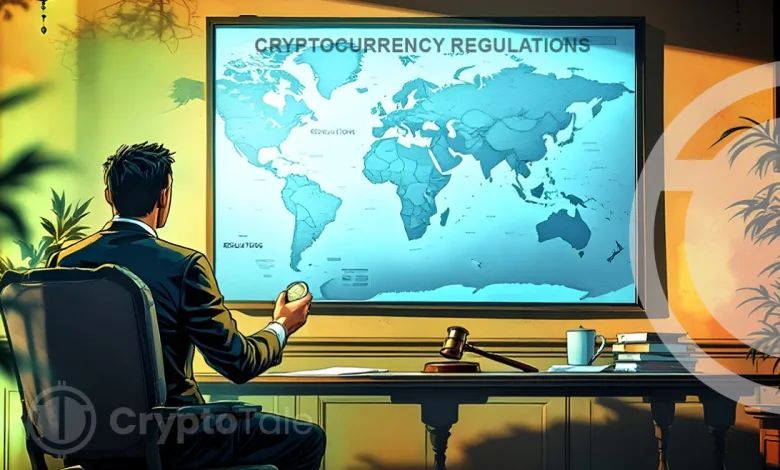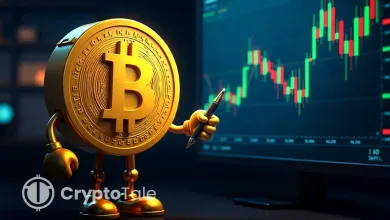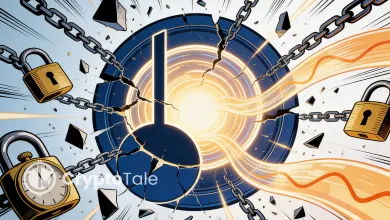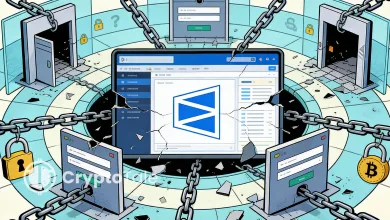Belarus Aims for Global Crypto Hub with New Regulatory Framework

- Belarus moves to regulate crypto, aiming to become a key player in the global crypto space.
- Lukashenko pushes for clear crypto regulations while maintaining state control and oversight.
- Belarus explores crypto mining opportunities to leverage its energy surplus for digital assets.
Belarus is moving toward a more structured approach to cryptocurrency regulation. President Aleksandr Lukashenko has directed lawmakers to create clear and transparent regulations for the nation’s digital asset market. This step is a response to the growing global trend of digital finance. It aims to position Belarus as a significant player in the evolving global crypto ecosystem.
Lukashenko noted the necessity of clear regulations. He emphasized that the government needs to establish obvious regulatory frameworks concerning the digital world. His observations reflect Belarus’s intentions to align with current financial trends under state oversight. This move is the continuation of previous actions, such as the 2023 Presidential Decree No. 80, which provided the basis for the control of digital tokens in Belarus.
Hi-Tech Park and Energy Drive Belarus’ Crypto Growth
This initiative is under the Hi-Tech Park, a special economic zone in Belarus. Lukashenko has requested further clarification of the role that government agencies and Hi-Tech Park play in the crypto industry. The favorable tax and legal conditions have already attracted blockchain startups to the park. This program would take Belarus one step closer to the global digital economy.
In March, Lukashenko directed the energy minister to explore cryptocurrency mining, suggesting that Belarus could utilize its surplus electricity for mining operations. This aligns with global trends, as countries like Bhutan and El Salvador have considered similar strategies.
Belarus has become one of the first countries to adopt cryptocurrency regulation. In 2017, the nation enacted Decree No. 8, which regulates digital assets. This decree permitted foreign blockchain startups to conduct business in Belarus under convenient terms.
Despite its openness to digital assets, Belarus remains cautious about the decentralized nature of cryptocurrencies. In September 2024, the President signed Decree No. 367, which prohibited residents from buying or selling crypto outside Belarusian exchanges. The goal of the move is to maintain state oversight of digital asset transactions.
Related: Australia’s Superannuation Turns Into a Test Case for Crypto Adoption
Controlled Crypto Approach Stands Out Amid Global Policy Differences
The assessment of Belarus’s crypto policy against those of other countries depicts several differences. As countries such as El Salvador have legalized and adopted cryptocurrencies, such as Bitcoin, fully, Belarus aspires to a more controlled atmosphere with governmental regulation. This approach is particularly appealing to investors seeking assurance when operating in the blockchain world.
The recent statements of Lukashenko reveal that Belarus might pursue a similar model to other countries representing power-based crypto mining. An example is Bhutan, which developed its abundant hydropower to build large-scale Bitcoin mining capacity, and El Salvador, which uses geothermal energy to mine. With the right regulatory framework, Belarus has an opportunity to exploit the energy resources in digital asset mining.
This move towards regulation would potentially have long-term implications for Belarus’ location within the global digital presence. Belarus is opening itself up to blockchain and crypto investments by becoming a regulated and innovation-friendly environment. The nation has the potential to be a center of digital finance in Eastern Europe with established principles upon which to base it.




